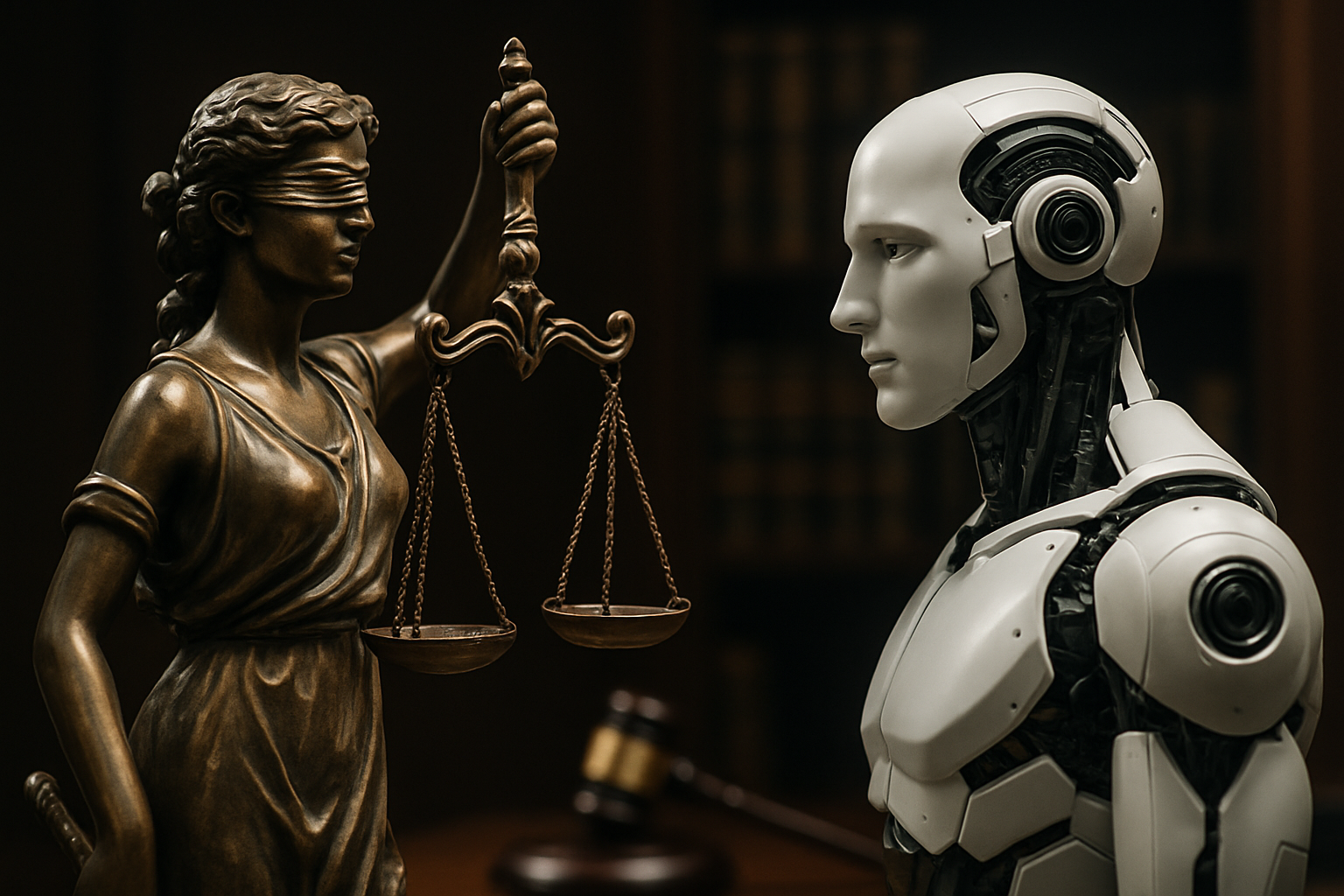Algorithmic Justice: The Future of AI in Legal Decision-Making
Introduction: In an era of rapid technological advancement, the intersection of artificial intelligence and the legal system is reshaping how justice is administered. This article delves into the emerging field of algorithmic justice, exploring its potential to revolutionize legal decision-making while grappling with ethical concerns and implementation challenges.

Historical Context and Legal Precedents
The use of algorithms in legal decision-making is not entirely new. For decades, courts have employed various risk assessment tools to inform decisions on bail, sentencing, and parole. However, these tools were often simplistic and based on limited data sets. The advent of machine learning and big data analytics has dramatically expanded the scope and sophistication of these systems. Landmark cases such as State v. Loomis (2016) in Wisconsin have begun to grapple with the constitutional implications of using algorithmic risk assessments in criminal sentencing, setting important precedents for the future of AI in the courtroom.
Current Implementations and Case Studies
Several jurisdictions have already begun implementing AI-assisted decision-making systems in their legal processes. In Estonia, the government has launched a pilot program to use AI in small claims disputes, with the goal of reducing court backlogs. China has experimented with AI judges for simple cases, while the United Kingdom has explored using machine learning to predict the outcomes of human rights cases. These early adopters provide valuable insights into the practical challenges and potential benefits of integrating AI into judicial systems.
Ethical Considerations and Bias Mitigation
One of the most pressing concerns surrounding algorithmic justice is the potential for bias and discrimination. AI systems are only as unbiased as the data they are trained on, and historical legal data often reflects societal prejudices. Researchers and legal experts are actively working on developing frameworks to detect and mitigate bias in AI decision-making tools. This includes efforts to increase transparency in algorithmic processes, diversify training data, and implement human oversight mechanisms to ensure fairness and accountability.
Legal and Constitutional Challenges
The introduction of AI into legal decision-making raises significant constitutional questions. Issues of due process, equal protection, and the right to a fair trial are at the forefront of legal debates surrounding algorithmic justice. Critics argue that the use of AI in sentencing may violate a defendant’s right to an individualized hearing, as enshrined in the Eighth Amendment. Additionally, the proprietary nature of many AI algorithms poses challenges to the principle of open courts and the ability of defendants to contest decisions made by these systems.
Impact on Legal Professionals and Court Processes
The integration of AI into legal decision-making is likely to have profound effects on the roles of judges, lawyers, and other legal professionals. While AI systems may augment human decision-making, they are not expected to replace judges entirely. Instead, the technology is likely to shift the focus of legal professionals towards higher-level analysis and interpretation of AI-generated insights. This transition may require significant changes in legal education and professional development to ensure that lawyers and judges are equipped to work effectively with AI tools.
Future Prospects and Regulatory Frameworks
As algorithmic justice systems continue to evolve, there is a growing need for comprehensive regulatory frameworks to govern their development and deployment. Policymakers and legal experts are working to establish guidelines that balance the potential benefits of AI in legal decision-making with the need to protect individual rights and maintain public trust in the justice system. Future developments may include the creation of specialized AI courts, the establishment of AI ethics boards within judicial systems, and the development of international standards for the use of AI in legal processes.
In conclusion, the integration of AI into legal decision-making represents a transformative moment in the history of jurisprudence. While the potential benefits in terms of efficiency and consistency are significant, the challenges of ensuring fairness, transparency, and constitutional compliance are equally substantial. As we move forward, careful consideration and ongoing dialogue between technologists, legal professionals, and policymakers will be crucial in shaping an algorithmic justice system that enhances, rather than undermines, the fundamental principles of justice and equality under the law.






